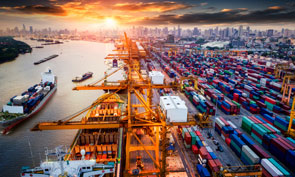
An unprecedented number of Mergers and Acquisitions (M&A) took place in the chemical industry over the past three years, according to Deloitte. Volumes hit a high of $650 billion in 2016 only dropping slightly in 2017. Having exhausted the possibilities from cost-cutting and retrenchment, companies are now adopting more nimble, coherent and aggressive business models. The trend for acquisitions has shifted to smaller, more tactical deals, leveraging new digital products and services and navigating the political forces affecting global trade.
These new digital products are set to bring extraordinary benefits to the chemical industry. However, while pure digital players can readily switch business models, the chemical industry has to ensure that its supply chain remains completely failsafe due to the hazardous nature of the materials. We have recently written a White Paper on the huge importance of cautious and well-considered change management when digitizing operations.
The majority of recent M&A deals in the global chemical industry took place between more disparate companies offering commodities and intermediates & specialty materials. The primary task, in this situation, is to ensure that all those companies in your portfolio are fully integrated and operate with a clear, shared understanding of, and commitment to, best practice. This is especially challenging when you are working across differing cultures and integrating state-owned enterprises into more commercial ones. The primary purpose of these acquisitions is to build or reinforce smarter global operations, so it is critical that you are able to service customers to the same high standards wherever you are operating. It is essential that your plan to standardize is far reaching. However, many companies tend to focus on production quality or sales operations. While these are undoubtedly essential what is often not initially considered is the catastrophic impact to brand reputation due to late or damaged cargo as a result of inadequate or non-compliant cargo protection.
This is why it is critical that you work with a totally reliable cargo protection partner with worldwide expertise and a global network of support and training facilities. Cordstrap are the world’s only truly international cargo protection company with teams operating in every major country. An increasing number of global customers are approaching us with requests to ensure that cargo protection practices are standardized across all their operations.
Our state-of-the-art cargo protection solutions will deliver heightened levels of cargo security, reducing the risk of accident and damage. But, just as importantly, they will also deliver considerable application efficiencies, reducing loading times and the manpower required, which will drive down the total cost of ownership (TCO). Moreover, our cargo protection solutions are fully CTU Code compliant and have been approved or certified by all major regulatory bodies including DNV, the International Maritime Organization, Mariterm AB and the American Association of Railroads (AAR). This greatly reduces the risk of delay or rejection due to non-compliant cargo protection and can help drive down insurance costs, all of which will contribute to reductions in TCO.
Ensuring that best practice is consistently applied to cargo security across your entire global network will also help to reinforce a corporate culture of excellence throughout your organization. A shared understanding that everyone in the organization is working to the same standards will ensure that you can confidently supply global customers from any of your facilities anywhere in the world.
For expert advice on cargo securing solutions contact us now
Contact now